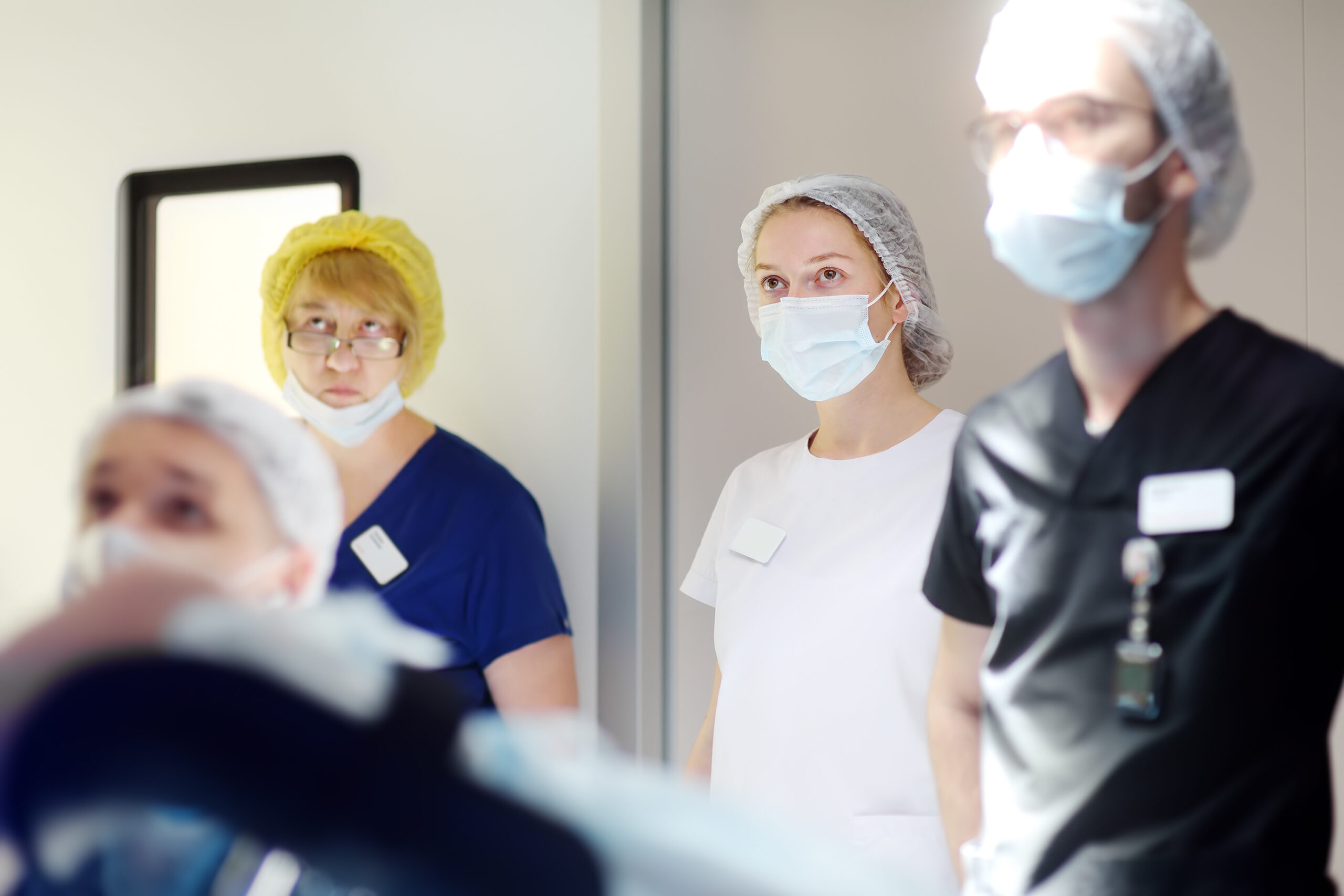This post was originally written by Zach Davidson and has since been updated by the Med School Tutors team.
I remember the pure joy of realizing I could now pursue my dream of becoming a doctor, the acceptance phone call I got from the dean of admissions followed by the excitement of telling my friends and family. But as my school start date crept towards me, anxious thoughts started to swirl in my mind. How would I possibly learn the sheer volume of material that I would soon face?
I asked this question to a few people on the interview trail, and still recall what one wise, grizzled 4th year shared with me, “Medical school is not any harder than the courses you took in college, in fact in many ways the material is easier — physics, organic chemistry, and on — you won’t encounter any subject close to that difficult in class. The hardest part is the volume. It really does feel sometimes like ‘drinking from a fire hose.'”
In pre-clinicals, and now in my 3rd year, I’ve certainly found this to be true. Each piece of clinical knowledge in medical school can feel like a piece of paper blowing away on a windy day. You might try to keep it down with your foot, or set a stone down to keep it in place, and when you are really rocking a pre-clinical class it’s sometimes easy to feel successful at mastering all the pages of material. But Step 1 can feel like a whirlwind, in which there are so many pieces of paper it is overwhelming and there are never enough stones to keep them from blowing away.
To master this mountain of material and be ready on test day to crush your exam, it’s useful to take a step back and think about the type of learner you are and how you can design your study regimen to best approach your learning style. This blog post will explore the different ways people learn best, and how to cater your Step 1 studying approach to your learning style using the assortment of popular Step 1 study resources that are available. We will discuss taking a learning assessment, and using the results to hone your study approach through “meta-cognition.” Success awaits, so let’s get going! (Prefer to listen/watch? Jump ahead to our video.)
Take a Learning Assessment to Determine Your Learning Style
In order to make the most out of your cherished study time, you will find it first helpful to clarify your learning style. This can be accomplished in many ways, but a helpful starting point is taking a learning style assessment. One of the most readily available (and free) is the VARK questionnaire (note: this is the author’s opinion alone and doesn’t reflect any endorsed stance of Med School Tutors). The questionnaire takes about 5-10 minutes, and will ask you several questions about how you prefer to engage with information and approach unknown material.
Overall there are 4 major categories (visual, aural, read/write, and kinesthetic). You can read more about the details of these categories on the VARK website. Check as many boxes that seem relevant, submit, and check out the results! I’ll share mine with you below.
Visual: 7
Aural: 9
Read-write: 9
Kinesthetic: 4
The test classified me as a ‘multi-modal’ learner (which most people are, to a degree) with a bias towards read/write and aural/auditory information. Visual ranked at the middle of the road and kinesthetic was dead last. Like any third party resource, take your questionnaire results with a grain of salt. I don’t necessarily think I get a ton out of a lot of lecture material so it was surprising to hear aural learning was my top result!
Once you have your results, you can begin to think about the ways you learn best. Under each learning style, the VARK website has some initial suggestions of approaches you can take to learning information. This is also a good time to engage in ‘meta-cognition’ which is in essence thinking about how you think and process information.
Think about times in your past when you’ve performed at your best. What was it about those experiences that were unique? What aspects could you replicate in your study routine?
Certainly not everything will apply, but many of your prior successes have elements you can put towards your study strategy for these tough exams. Thinking about your own life experiences and preferences with the results of the questionnaire can help you understand your optimal learning style.
Visual Learning
For visual learners in medical school, Sketchy is your friend. Can you say, ‘memory palace’? Sketchy is a powerful learning tool, and receives well-deserved praise among med students for how well it locks information into your mind. My favorites are the ‘OG’ bacteria videos, but I’ve found it to be helpful for recall of the critical test-worthy facts about nearly all Step 1 drugs and bugs. Picmonic has the same strategy and has been useful to students as well.
Additionally, flashcards can be great for visual learners. Anki gets a lot of med school cred for its method of spaced-repetition learning and repeat exposure is certainly helpful! However, my need for color and a bit more fun has Anki leaving me feeling something to be desired (I only used it for one class/clerkship – MS3 Psych). There are other flashcard services like Memorang and StudyBlue which can serve the same purpose if you just aren’t feeling the Anki vibes.
High-Yield Resource Inventory: SketchyMedical (Micro and Pharm), Flashcards, active reading.
Your Achilles Heel with Visual Learning: Be mindful of when your eyes are glazing over and you are not ‘chewing on’ the information. The best way to get that information to stick is to struggle and dance with it a bit! Highlighting along with the text or reading the flashcards under your breath can be helpful. Like any learning style, make sure you are getting enough rest before you study. Taking breaks is important; if you are too beat you won’t assimilate new information well regardless of learning style!
Aural (or Auditory) Learners
Auditory learners and fellow medical students, lend me your ears. These students learn best by hearing the information out loud. If you fall into this category, you should consider listening to recorded lectures like the original Goljan Kaplan audio (especially useful while commuting).
‘Spitballing’ or talking through the concepts with a friend after studying can be a useful way to consolidate information for these learners. Try to make other resources conducive to your style, like listening to recordings of Pathoma after the initial viewing until you feel you have the information down.
High-Yield Resource Inventory: Goljan audio
Your Achilles Heel with Auditory Learning: Try not to multitask too much while you listen. I’m VARK-ranked as an auditory learner and would often go on runs while listening to audio to study for Step 1. Often I found that I couldn’t go as intensely in my workouts as usual because I would no longer really ‘hear’ what was being played.
Read-Write Learning in Med School
These students consolidate information well when they’ve written, read, and re-written material multiple times until it’s positively stuck! I identify most as a read-write learner, so I can share some tips that have worked well with me.
The act of writing things out while I learned them often seemed to be more useful than the notes after the fact. If you are in this camp, owning a whiteboard can be helpful. I would write down mnemonics multiple times until they stuck or draw out tables and charts, stare at them for a bit, and then attempt to draw them again from memory. I’ve experimented with the Feynman technique too, which encourages writing as much as you can about a topic on a blank page to see where holes in your knowledge lie.
Grabbing a stack of printer paper to jot down notes while you watch Pathoma, Sketchy, or reading First Aid can be a high yield method too. I would often write the same concept a few times to make it brief. Finally, once you’ve finished a lecture, try to summarize the basic concept in a few words. It’s kinda hard at first! But it’s a valuable tool for synthesizing topics as you go and making sure you’ve actually understood them.
High-Yield Resource Inventory: The UWorld notes section can be a good place to type out the key portions (or more) of the UWorld answers to allow them to consolidate them in your mind.
Your Achilles Heel as a Read-Write Learner: Getting stuck in the ‘process’ of working through the information so much that you are no longer efficient. Try blocking out time for your studies (i.e. an hour for this First Aid chapter, and 30 minutes for these flashcards, etc.) to make sure you are getting through the material in an efficient manner. It’s easy to spend too much time on one topic and not get to the other essential stuff!
Kinesthetic Learning in Med School
Last but not least, the doers, the kinesthetic learners! These people get the most out of putting some physicality into their studying. Acting out the content you’ve learned can be super helpful here. This is easily done with MSK/neurological deficits and can be better applied in other ways too.
Try to get up and move around (pace and/or gesticulate your hands), it can be a little silly but bobbing your head up and down or tapping your foot can help you release some energy while you study and improve focus. Writing out physical flashcards and going through them on a walk or run can make learning more active for you.
High-Yield Resource Inventory: Integrating movement into your studies. Do some push-ups or jumping jacks when you get bleary-eyed to get back into focus (I sometimes like to do 10-15 pushups/jumping jacks after I finish a UWorld block when I’m in my room to clear my head). Listening to audio and then pausing and explaining it with actions and acting it out as you tell it to an imaginary audience can be helpful.
Your Achilles Heel as a Kinesthetic Learner: Make sure you are making it through all the concepts you need to each day if you are getting up and moving around. Try to make lists of discrete topics you want to get through and then cross them off as you go!
Thanks for reading, my fellow learners! On a final note, as with any learner I have my own learning biases, and my views will be those of a read-write and auditory-inclined person. And for all learners, make sure to keep learning active! Try to be self-aware about when you are internalizing information versus just going through the motions. Now go out there and rock that UWorld/lecture/reading grind!





